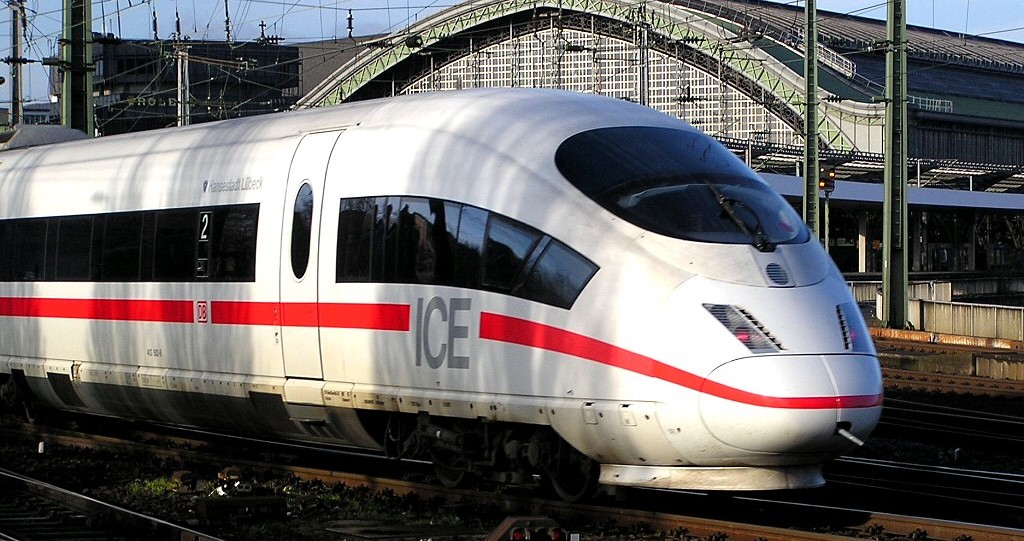Railroad to connect St. Petersburg with Berlin
October 2, 2018 | Expert Insights

Russia and Germany have agreed to connect Germany’s capital Berlin with St. Petersburg, which is often branded Russia’s northern capital.
Background
Germany and Russia have had a contentious relationship, which has seen the two nations fight together in wars as well as engage in two opposite sides of a long drawn cold war.
Modern ties between the Russian Federation and the European Union began with the end of the cold war and the collapse of the Soviet Union. The Partnership and Cooperation Agreement signed in June 1994 became the basis for the political and economic relationship between Europe and Russia. According to the European External Action Service (EEAS), the EU is one of Russia's largest trading and investment partners, while Russia is the EU's fourth trade partner. In 2015 EU exports to Russia totalled €73.9 billion, while EU imports from Russia were €135.8 billion. The EU trade deficit with Russia was, therefore, €61.9 billion in 2015, and it is primarily the result of significant EU imports of energy products from Russia. Russia is the EU’s largest supplier of oil, gas, uranium, and coal.
Today, Russia and a number of EU nations have opposing stances on a number of geopolitical issues, including the Assad regime in Syria and alleged Russian support for Rebels in eastern Ukraine. The European Union issued support for the UK’s allegations that Russia was responsible for the Skripal spy poisoning case. Germany, France, and the UK have all said that Russia may be responsible for cyber attacks.
Germany’s disillusionment with the US began when Washington appointed Richard Grenell as the US Ambassador, who openly supported anti-globalisation, right-wing radical organisations in Germany.
German officials including Foreign Minister Sigmar Gabriel and Defence Minister Ursula von der Leyen criticised the US and Trump’s “America First” approach to foreign policy at the Munich Security Conference earlier this year.
The recent agreements between Moscow and Berlin signify a gradual drifting away of Germany from the US’s sphere of influence.
Analysis
The news, first published in the Russian media, was confirmed by Germany’s Federal Ministry of Transport and Digital Infrastructure. The train will go from Germany to the Russian exclave city of Kaliningrad and then onwards to St. Petersburg, the ministry has confirmed.
There is currently no direct railway between St. Petersburg and Berlin. Passengers have to make a two-hour connection in Moscow and spend 32 hours on road. It is also difficult to get from Berlin to Kaliningrad by train - you have to change trains twice. The new route will also slash the travel time between St. Petersburg and Kaliningrad by almost a half
Russian Railways has also confirmed the new route, Izvestia daily reports. The countries have given no information about the date of the launch of the railroad, but it is likely to be a significant boost Russian-German tourism.
“At the moment, the technical development of the project is being carried out. The matter is, for example, that some stations on the route can accept trains with 50 cars, and some can’t. It is too early to speak about the approximate time frames of the launch,” Russian Railways said.
The German-Russian rail link is that latest agreement between the two European nations which signify deeper cooperation on multiple fronts. Germany’s acceptance of the Nord Stream 2 expansion, a Russian oil-and-gas pipeline megaproject is in stark contrast with the US’s current view of Moscow.
Assessment
Our assessment is that the growing cooperation between Germany and Russia will be a cause for concern for Washington. Russia is already Europe’s largest supplier of Oil and Natural gas, and American fears of total energy dominance by Russian firms, along with Moscow’s growing clout could shatter America’s vision for Europe. We believe that the rail link is a step towards deeper cooperation between Berlin and Moscow, which will lead to more trade and development between the two countries. We also feel that Russia is using bilateral agreements and cooperation in order to maintain its expansive new gas terminal in Germany, which is a part of the Nord Stream 2 expansion.








Comments